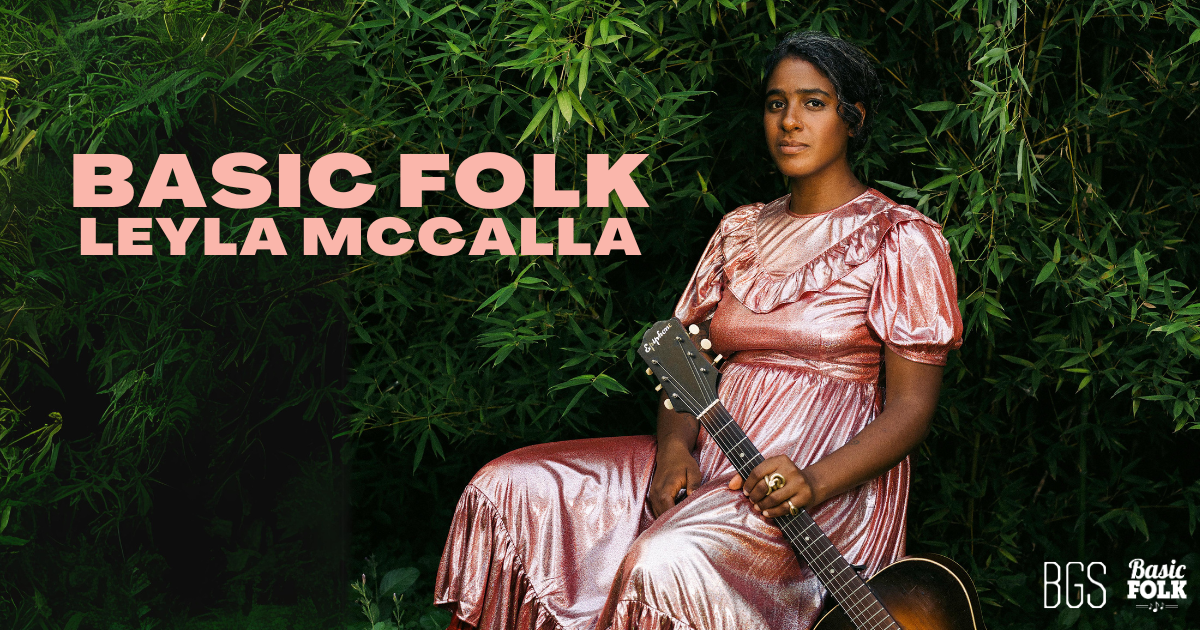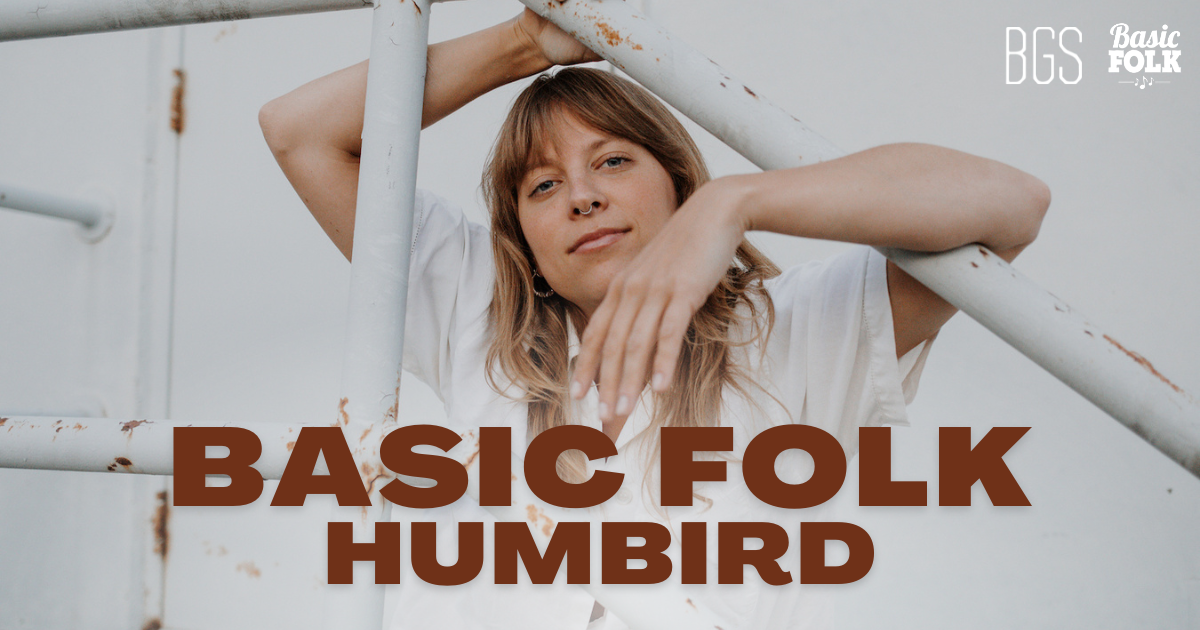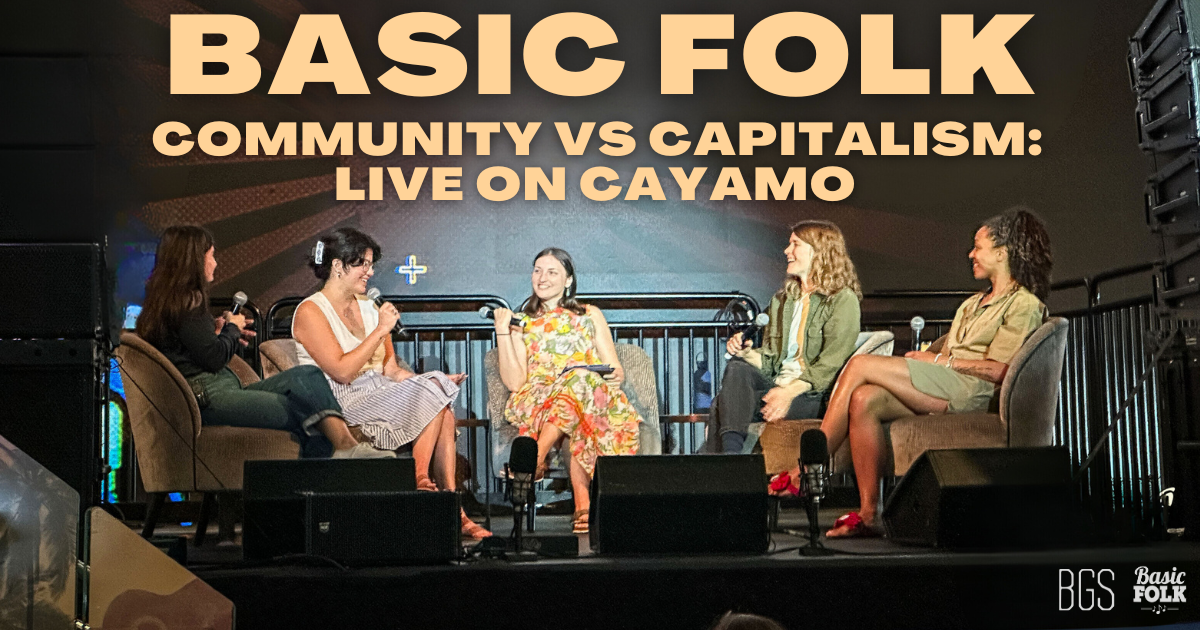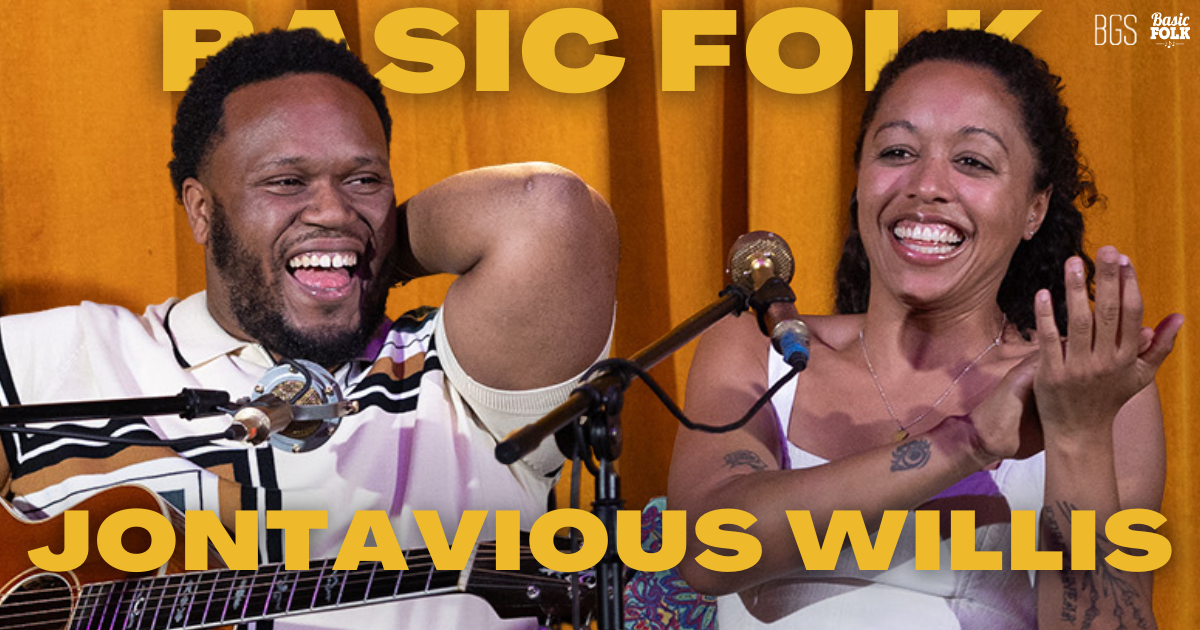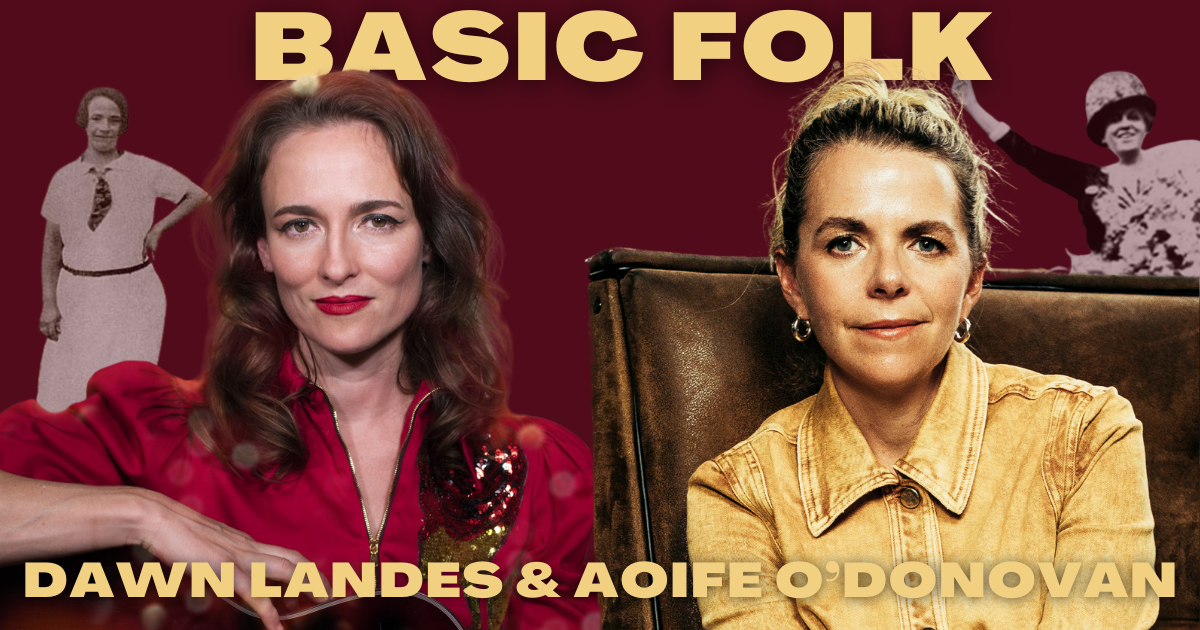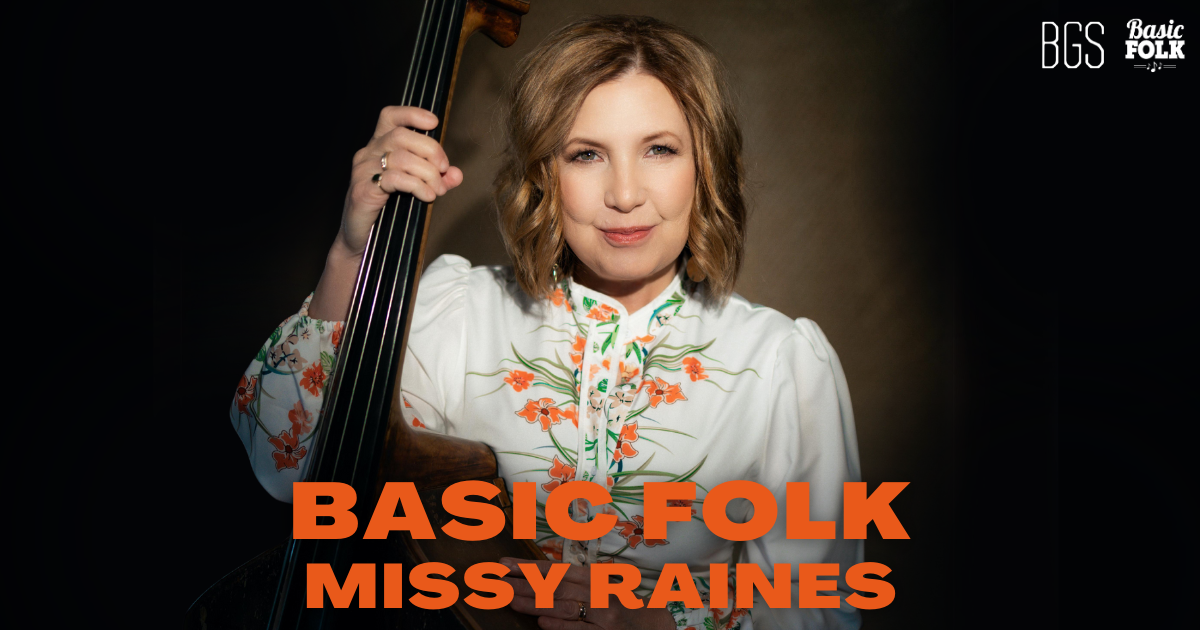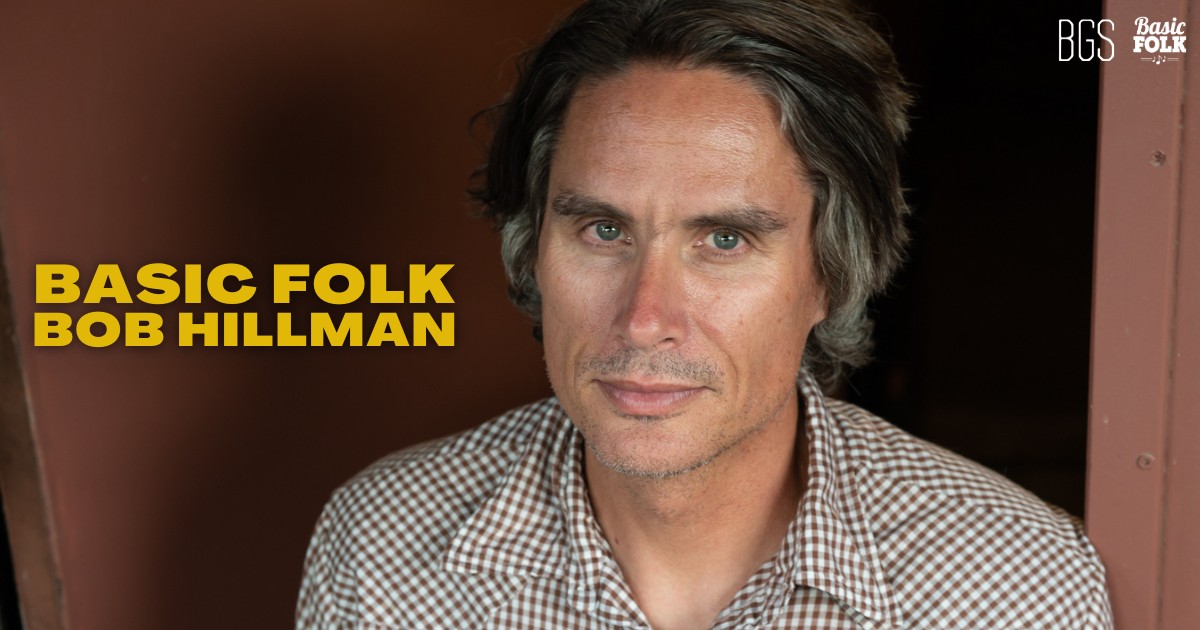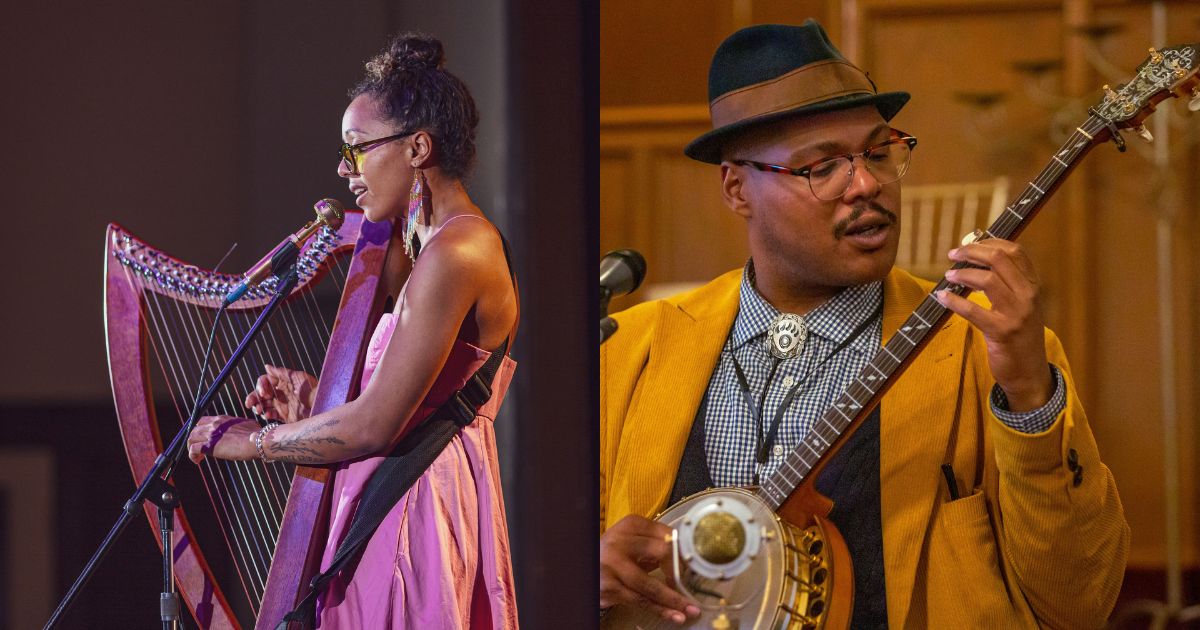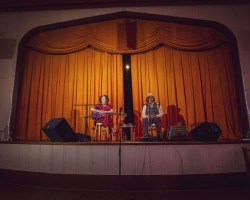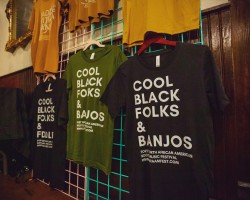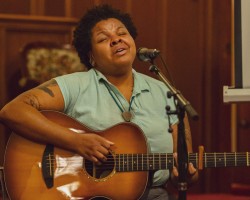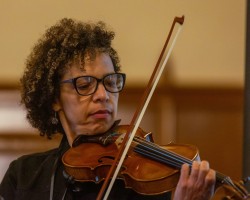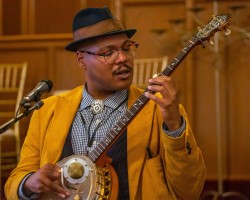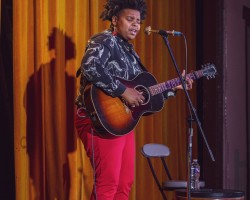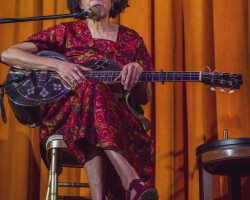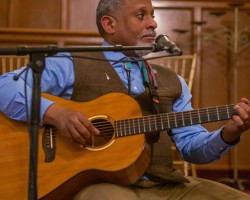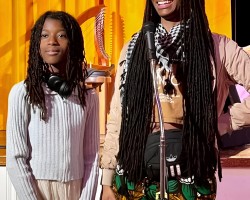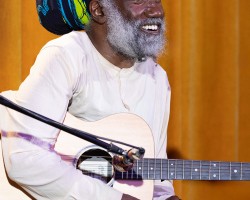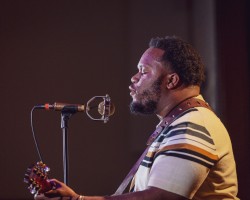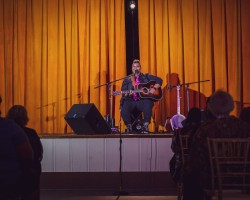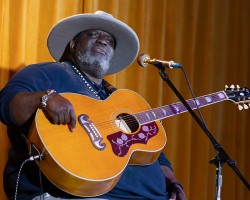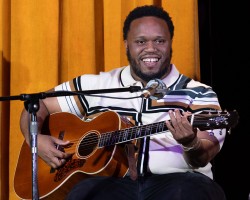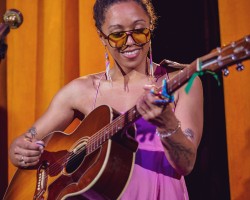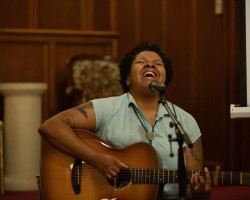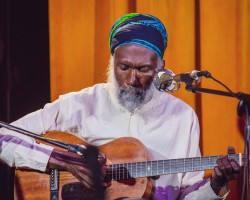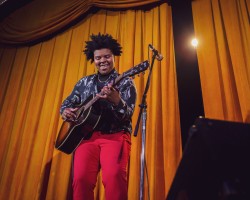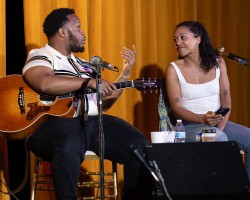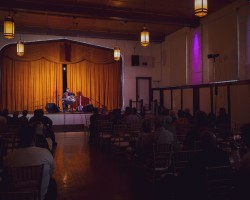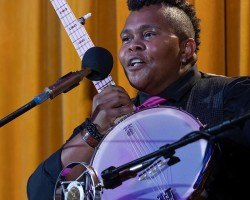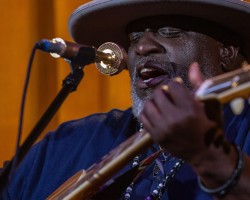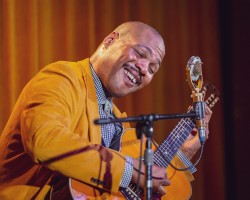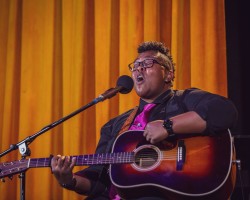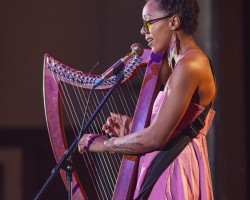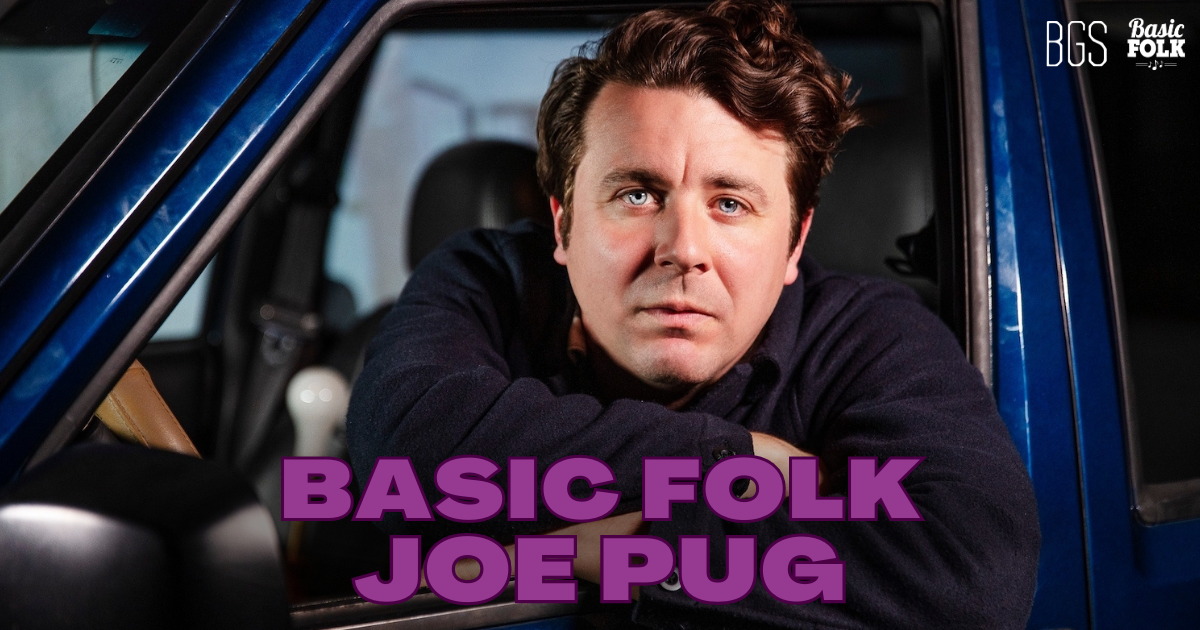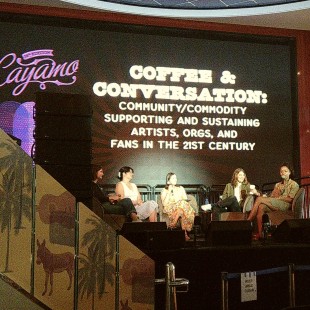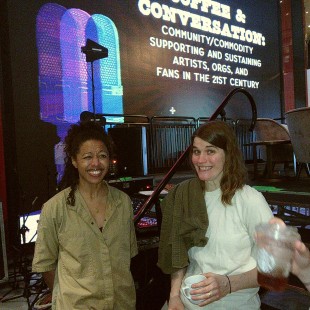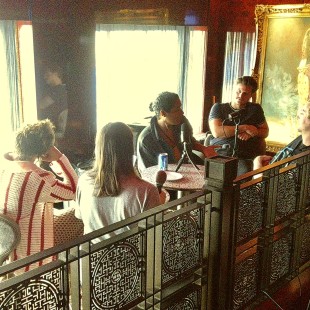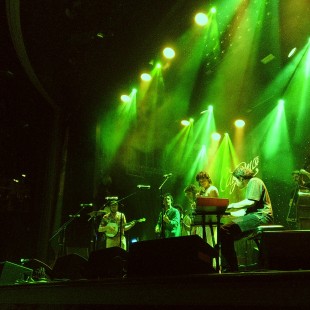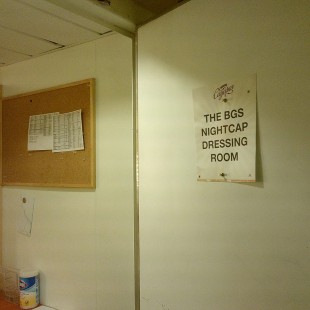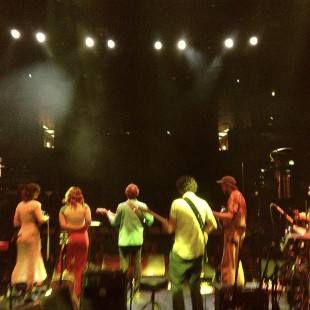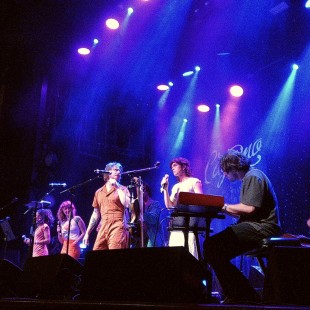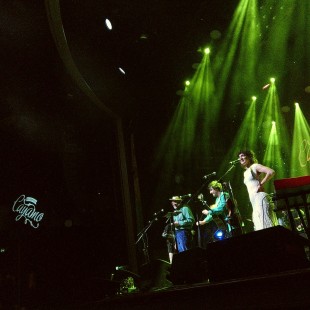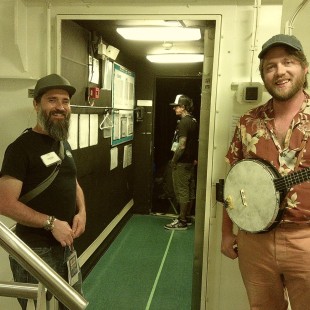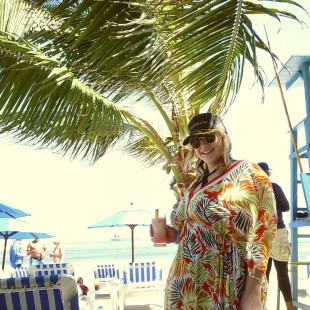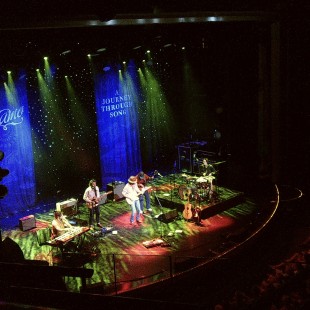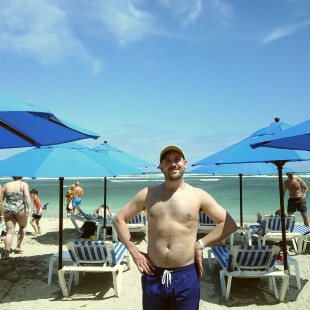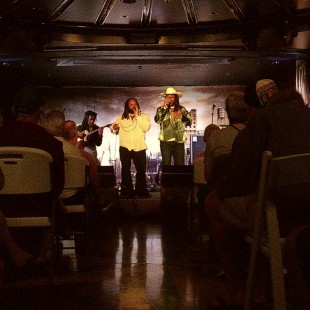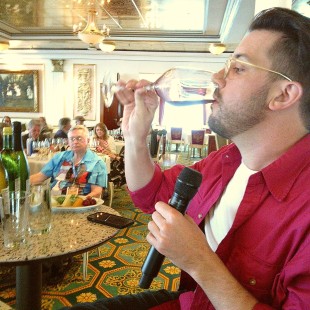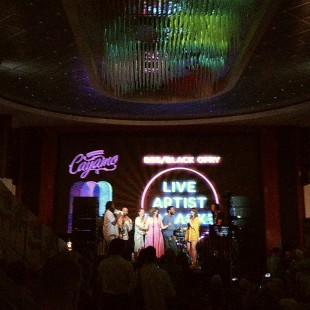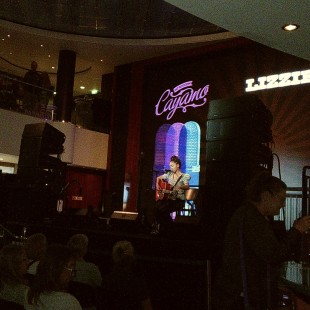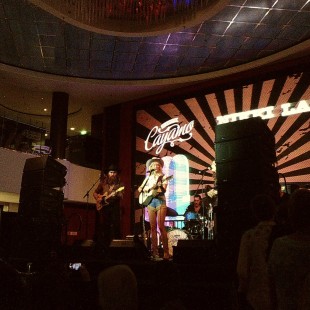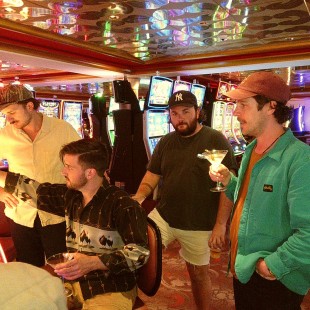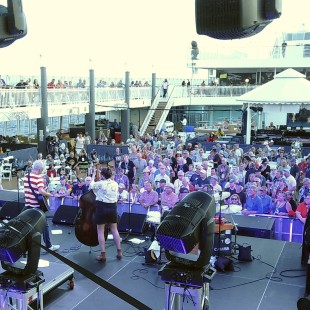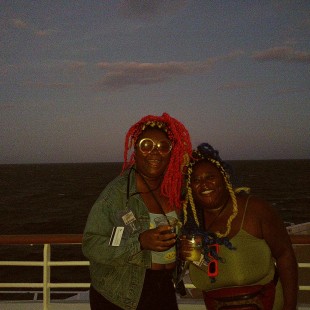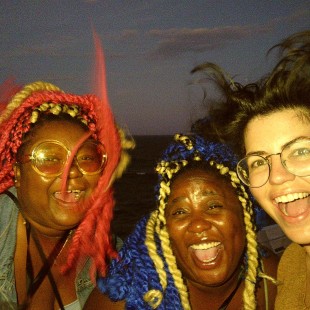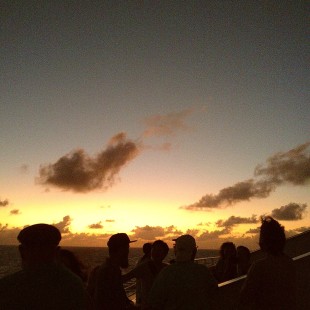Singer-songwriter Leyla McCalla and her band (bassist Pete Olynciw, drummer Shawn Meyers, and guitarist Nahum Zdybel) join us onboard Cayamo to go through their incredible, righteous and fun new record Sun Without the Heat. It is a Leyla McCalla solo album, but no solo artist is an island! Once we saw Leyla perform with her band, with whom she has collaborated for the past six years, we had to get the whole collaborative outfit in on the interview.
LISTEN: APPLE • SPOTIFY • STITCHER • AMAZON • MP3
The sounds on the album are inspired by Afrobeat, Haitian music, folk music, indie music, Americana music, Brazilian tropicalismo, amongst others. Leyla calls it, “A record that is playful and full of joy while holding the pain and tension of transformation.” McCalla’s liberatory politics find their way into the record, evidenced by the title – which comes from a Frederick Douglass speech given six years before the Emancipation Proclamation. Leyla explores her cultural heritage while reflecting the African diaspora using elements of Afrofuturism. She’s leaning into a concept that challenges women in music (particularly women of color) of how to free herself from labor that should not be hers, and fighting for her right to be joyful in her creative expression.
When asked about how these new songs feel through the lens of somatic experience, Leyla says the new music feels different and that she’s let go of the idea of perfectionism as a single mom of three kids. A lot of the record was informed by different authors she’s read recently like adrienne maree brown (Pleasure Activism) and Susan Raffo (Liberated To the Bone). Leyla’s really changing the game in Americana, when it comes to incorporating the academic into truly bitchin’ music.
Sidenote: we really loved hanging out with this crew at sea on Cayamo. They had great vibes, good laughs, and also very good outfits. Lizzie even recruited Pete to play bass in an impromptu trio while on board. More good times with Leyla and band, please!
Photo Credit: Chris Scheurich
